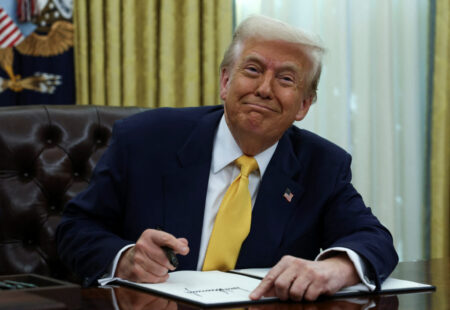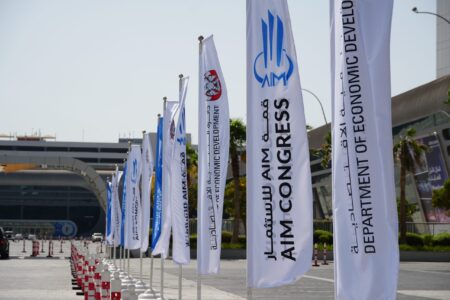- Tanzania is growing its national gold reserve as a smart move to counter USD shortage.
- Already, the country lags behind peers Kenya and Zimbabwe in gold reserve held yet its a major exporter of the precious mineral.
- Will Tanzania’s new plan be enough to counter its currency woes?
In the face of a persistent U.S. dollar shortage crisis, authorities in Tanzania are turning into gold hoarding as a potential solution. Despite being Africa’s fourth largest gold producer, accounting for 1.3 per cent of the global output, Tanzania’s gold reserves stand at an estimated 45 million ounces, which is relatively low compared to its peers. For context, Kenya holds 0.02 tonnes, Zimbabwe at 2.5 tonnes, while the world’s largest economy and issuer of the dominant dollar, boasts a staggering 8,133.46 tonnes in gold reserves. Will Tanzania’s new plan be enough to counter its currency woes?
For policymakers in Tanzania, storing value in more stable assets such as gold is billed as a smart move to minimize effects of persistent dollar shortage. “These (economic) disruptions typically leave underdeveloped countries vulnerable to severe economic instability, particularly in the form of inflation and currency depreciation, both of which significantly hinder growth,” comments Joel Ntile in his review of Tanzania growing its gold reserve.
To safely navigate the effects of such disruptions, he writes, Tanzania must consider alternative reserve options like, Gold. “Gold in particular, can be a powerful safeguard for the nation’s currency and help stabilize inflation during global disruptions,” he notes.
Tanzania growing gold reserve to stem USD shortage crisis
Notably, Tanzania is one of the countries that suffers from shortage of dollars making it expensive for the country to trade. “Tanzania’s dollar crisis has been going on since early 2023…primarily characterised by a shortage of dollars, which are vital for international trade, while the Tanzanian shilling depreciated, making imports more expensive,” he explains.
According to the analysts, the dollar crisis disrupted many economic activities since Tanzania relies heavily on imported goods for consumption and production. This prompted the Bank of Tanzania (BoT) to adopt measures such as injecting some of its reserves into circulation to ease the shortage.
In its explanation and offered solution to the shortage of dollars in Tanzania, the Bank of Tanzania announced that it “…continues to actively participate in the market by selling US Dollars to commercial banks as part of its efforts to mitigate foreign currency shortages in the country.”
“This initiative aims to ensure adequate foreign currency liquidity in the market. In addition, it intends to ensure customers’ demands for foreign currency are met through licensed financial institutions at the prevailing market prices,” said the BoT in a media communique.
The BoT has since the shortage, taken steps to revive its gold reserves including increasing its own purchase of gold from artisanal, small, medium, and large-scale miners. The BoT says its goal is to acquire 6 tons of gold in the 2024/25 financial year.
Also Read: USAID shut down: Africa on edge as Musk, Trump end almost a century of global aid
Gold surpasses tourism as top foreign exchange earner
“Historically, gold has outperformed the US dollar and demonstrated steady price appreciation over the years. With the dollar shortage that Tanzania continues to face, BoT could have leveraged its gold reserves to boost the dollar supply,” the analysts notes.
Gold surpassed tourism to become Tanzania’s largest foreign exchange earner since 2021; “In 2022, Tanzania exported 62.5 tons of gold, almost all of which was sold abroad, leaving the country without a commodity reserve standard for the central bank,” the analyst reveals.
He goes on to advise on the need for Tanzania to grow its own gold reserve at the BoT; “it will help mitigate economic disruptions that affect prices and currency value. This can be done by selling gold reserves to the international market to obtain foreign currency in times of shortage,” he writes.
To this end, Tanzania’s Mining Act mandates mineral rights holders to set aside 20 per cent of their minerals for the country’s monetary stock, and the BoT promises to buy the minerals, especially gold, at competitive world prices but it will do so through local refineries.
Similarly, Tanzania’s National Assembly has ordered into law a requirement that all payments being made within the country be done in Tanzanian shillings and not in dollars as sometimes preferred especially in the hotel and hospitably industries.
The government has detailed that the targeted payments include international school fees, house rent, private sector employees’ payments, hotels and payments for services provided by local companies; “all of these should be paid for in Tanzanian shillings not in dollars,” the government has ordered.
Chairman of the Parliamentary Budget Committee, Daniel Sillo recently advised the government “…to conduct an analysis and identify non-essential goods that are imported in large quantities from abroad and increase taxes on them in order to reduce their importation, this also been in a bid to ease the pinch of the dollar shortage.”
In another move to curb the dollar shortage, the Bank of Tanzania (BoT) resolved to sell an increased amount of dollars to commercial banks at reduced prices. By doing so, the BoT aims to lower the exchange rates in the market, the MP explained. He said in a similar move, the BoT has also increased issuing of licenses for businesses that wish to open forex bureaus.
However, of all its initiatives, it is the order to miners and gold traders to allocate at least 20 per cent of their gold production to the central bank that is bound to grow the national gold reserve. “By increasing its gold reserves, Tanzania hopes to counter the downward pressure on the Tanzanian shilling,” the BoT maintains.
The Central Bank insists that; “…this diversification is designed to protect Tanzania’s wealth from currency devaluation and economic instability caused by global shocks.”
In its latest report, the BoT reveals that; “Reports show that Tanzania has ramped up its gold purchases from local miners since the last financial year, which ended in June 2024. During the 12 months leading up to June, the central bank purchased 418 kg of gold to bolster its reserves, and in the current financial year, it plans to buy 6 tons of gold.”
Tanzania announced the creation of its national gold reserve at the presentation of its 2023-2024 budget for that financial year.
The establishment of the national gold reserve means Tanzania now has both a gold reserve and a dollar reserve moving away from reliance of only the US dollar as its foreign exchange reserve. Notably, as more countries build up gold reserves, the global demand for gold is rising, and consequently, the price of gold is increasing significantly making gold even more valuable.










